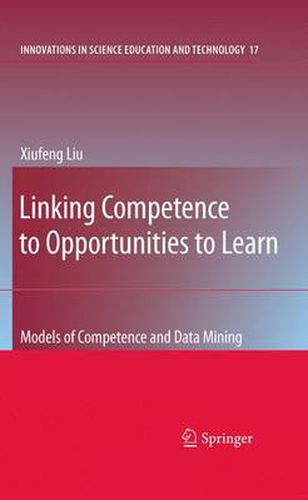Readings Newsletter
Become a Readings Member to make your shopping experience even easier.
Sign in or sign up for free!
You’re not far away from qualifying for FREE standard shipping within Australia
You’ve qualified for FREE standard shipping within Australia
The cart is loading…






This title is printed to order. This book may have been self-published. If so, we cannot guarantee the quality of the content. In the main most books will have gone through the editing process however some may not. We therefore suggest that you be aware of this before ordering this book. If in doubt check either the author or publisher’s details as we are unable to accept any returns unless they are faulty. Please contact us if you have any questions.
For many people, a high standard for student learning is desirable. This is what underlies current standard-based science education reforms around the world. As someone who was born and brought up in a less-privileged home and educated in a resource-limited school environment in a developing country, I always had to study hard to meet various standards from elementary to high school to univ- sity. My first book in English published over 10 years ago (Liu, X. [1996]. Mathematics and Science Curriculum Change in the People’s Republic of China. Lewiston, NY: The Edwin Mellen Press) provided me an opportunity to examine standards (i. e. , Chinese national science teaching syllabi) from a historical and political point of view. I argued that standards are developed for particular poli- cal agendas in order to maintain the privileged position of certain groups (i. e. , urban residents) in a society at expenses of others (i. e. , rural residents). Thus, underneath standards is systematic discrimination and injustice. Since then, I have had opportunities to study the issue of standards in much more breadth and depth. This book, Linking Competence to Opportunities to Learn: Models of Competence and data mining, provides me an opportunity to examine standards from a different perspective: opportunity to learn.
$9.00 standard shipping within Australia
FREE standard shipping within Australia for orders over $100.00
Express & International shipping calculated at checkout
This title is printed to order. This book may have been self-published. If so, we cannot guarantee the quality of the content. In the main most books will have gone through the editing process however some may not. We therefore suggest that you be aware of this before ordering this book. If in doubt check either the author or publisher’s details as we are unable to accept any returns unless they are faulty. Please contact us if you have any questions.
For many people, a high standard for student learning is desirable. This is what underlies current standard-based science education reforms around the world. As someone who was born and brought up in a less-privileged home and educated in a resource-limited school environment in a developing country, I always had to study hard to meet various standards from elementary to high school to univ- sity. My first book in English published over 10 years ago (Liu, X. [1996]. Mathematics and Science Curriculum Change in the People’s Republic of China. Lewiston, NY: The Edwin Mellen Press) provided me an opportunity to examine standards (i. e. , Chinese national science teaching syllabi) from a historical and political point of view. I argued that standards are developed for particular poli- cal agendas in order to maintain the privileged position of certain groups (i. e. , urban residents) in a society at expenses of others (i. e. , rural residents). Thus, underneath standards is systematic discrimination and injustice. Since then, I have had opportunities to study the issue of standards in much more breadth and depth. This book, Linking Competence to Opportunities to Learn: Models of Competence and data mining, provides me an opportunity to examine standards from a different perspective: opportunity to learn.